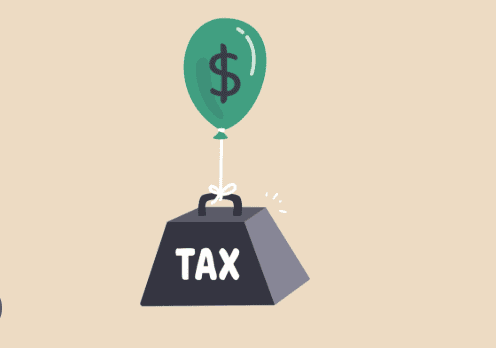Discover how a Canadian family achieved 239% returns using strategic...
Read MoreThe Real Pros and Cons of a Non-Registered Savings Account

Saving money after retirement can feel overwhelming, especially when you’re trying to make smart decisions that protect your finances and give you peace of mind. Whether you’re managing income from pensions, investments, or government benefits, choosing the right kind of savings account matters. One popular option is the non-registered savings account. But is it really the best fit for your retirement goals? In this article, we’ll explore both the upsides and downsides of this flexible savings tool so you can decide with confidence.
What Is a Non-Registered Savings Account?
A non-registered savings account is a standard savings account that isn’t tied to any government tax shelter like a TFSA (Tax-Free Savings Account) or RRSP (Registered Retirement Savings Plan). This means there’s no limit to how much you can put into it, and you can withdraw your money at any time. However, any interest or investment income earned in the account is taxable. While that may sound like a drawback, the flexibility of these accounts can make them a valuable part of your retirement toolkit.
These accounts are especially appealing for retirees who have already maxed out their registered accounts or who need quick access to cash for travel, emergencies, or large purchases. They’re easy to open at most banks or credit unions, and there are usually no major restrictions on deposits or withdrawals. But, like any financial product, they come with both benefits and trade-offs.
The Pros: Flexibility, Simplicity, and Access
Here are some of the reasons why a non-registered savings account might be the right choice for retirees:
- Unlimited Contributions: Unlike TFSAs or RRSPs, you can put in as much money as you want without hitting a government-set limit.
- Easy Access: Need money for a home repair or last-minute trip? Withdraw funds at any time without penalties.
- No Age Limits: You can continue using and contributing to this type of account at any age—perfect for retirees.
- No Withdrawal Restrictions: Unlike RRSPs that convert to RRIFs and come with withdrawal minimums, non-registered accounts give you total control over your money.
These features make this account especially helpful for emergency funds or short-term goals, offering both peace of mind and easy financial access when you need it most.

The Cons: Taxable Earnings and Lower Returns
While the flexibility of a non-registered savings account is appealing, there are important drawbacks to consider:
- Taxable Interest: Any interest or investment income earned in the account must be reported on your tax return and is fully taxable. This can reduce your net earnings, especially if you’re in a higher tax bracket.
- Lower Interest Rates: Many non-registered savings accounts—especially those offered by traditional banks—come with low interest rates that may not even keep up with inflation.
- No Tax Sheltering: Unlike a TFSA, you don’t get to grow your money tax-free. This can be a big disadvantage if you’re saving for long-term goals or trying to maximize returns on investments.
So, while you gain flexibility, you lose some of the financial perks that come with government-registered accounts. It’s a trade-off between convenience and tax efficiency.
When a Non-Registered Savings Account Makes Sense
For retirees, a non-registered savings account often plays a supporting role in a broader financial plan. It’s best used for:
- Holding emergency funds
- Saving for short-term goals (travel, home upgrades, etc.)
- Managing irregular income from part-time work or consulting
- Parking extra cash after maximizing TFSA or RRSP contributions
If you’re relying heavily on investment growth to fund your retirement, you might want to keep most of your money in tax-advantaged accounts. However, having a non-registered account on the side gives you flexibility without locking away your funds.
Final Thoughts: Is It Right for You?
A non-registered savings account offers a mix of freedom and accessibility, which can be incredibly useful during retirement. But it’s important to weigh these benefits against the cost of paying taxes on your earnings and potentially lower returns. If you’ve already taken care of your long-term savings and are looking for a place to store short-term or emergency funds, this kind of account could be a helpful part of your overall retirement plan.
In the end, the best savings strategy depends on your personal goals, income level, and tax situation. A non-registered savings account isn’t perfect, but when used wisely, it can give retirees the flexibility they need without sacrificing access to their money.
You may also interested in
Canadian Soldier Achieves 204% ROI with Investment Loan and Segregated Fund| AiF Clients
Zack, a Canadian soldier in his 40s, turned limited savings...
Read MoreFrom $100K to $520K: How a Millennial Actuary Couple Achieved a 154% Leveraged Return| AiF Clients
Discover how a millennial actuary couple used investment loans and...
Read MoreCan Non-Residents Invest in Segregated Funds in Canada?Hazel’s Journey with Ai Financial| AiF Clients
Hazel, a non-resident mother in Canada, invested CAD $200,000 across...
Read MoreFrom Anxiety to Empowerment: How a Mom of 3 Gained $67K in 20 Months | AiF Clients
Zara, a working mom of three, turned $200K into $259K...
Read More




